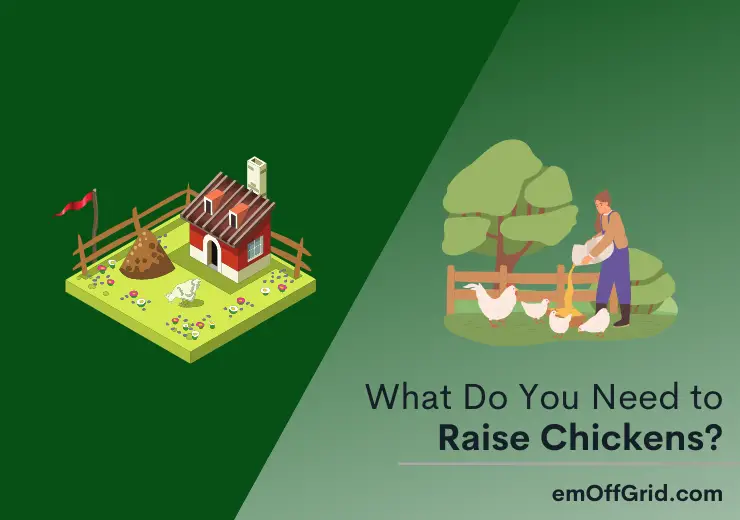Raising chickens in your backyard is simple. You only have to know what you need to raise chickens and why you should raise chickens.
Whether you live an off-grid lifestyle or grid-tied, keeping chicken suits you because of the many benefits that come with it.
For off-grid living, chickens are the ideal source of protein. With just 30 to 90 days, you can raise a chicken for both egg and meat, and you should define them from the start.
Why are we saying so? Some chicken breeds are best for meat production, while others are good egg layers.
Chickens are also your great companion as an off-gridder. They can be kept as pets or for mutual benefits, such as picking worms, beetles, and insects in your flower garden.
For whatever reason you are keeping the chickens, you need to know what you need to raise them. Proper preparation guarantees success. That is what this article is all about. Keep reading to become a pro-farmer.
Contents
Why Must You Need to Prepare to Raise Chickens?
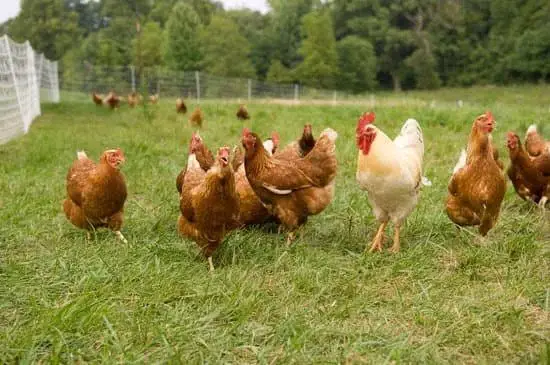
You can start backyard poultry keeping from incubating eggs or buying chicks from a hatchery and brooding them.
Some people also want to skip the brooding process by buying hens at the point of lay. Whichever the approach, proper preparation is mandatory.
Raising chickens the right way guarantees high production of eggs, meat, or both. Well taken care of chickens are disease and stress-free. You need to care for your chickens just as you would with your other pets or even children.
Failure to prepare to raise chickens comes with adverse effects. First, you might lose the entire flock to diseases and predators.
Secondly, your chickens will be stressed, leading to low production. If you are to depend on them for food, you will barely get enough.
Avoid raising chickens the wrong way by preparing adequately for them. You need to prepare before they arrive at your home and do routine tasks after. We have prepared everything for you in this article.
7 Things Need to Raise Chickens
Do you have to be a qualified farmer to raise backyard chickens? No! You only need to prepare well and be confident in your ability.
To raise chickens, start by defining why you need to do it. Will they be for meat, egg, pleasure, or a combination of any of the reasons?
Also, you need to determine the size of the flock, the cost of raising them, and the type of housing they will need. In this section, we will talk about what you need to raise backyard chicken. How to raise poultry is a topic for another day.
Check the Laws and Ordinances in Your Area
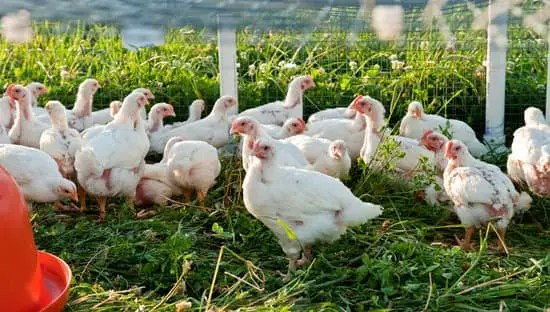
Raising chickens is governed by law, especially if you live in urban areas. Chickens are noisy when they roost, and their droppings can produce an odor. These might cause discomfort to your neighbors.
When raising chickens in the urban or suburban area, check what the law says. The size of the flock is limited in some areas, while some property owners do not allow backyard chicken keeping if you live in rentals.
The laws might not be strict if you live off the grid. That is because you will be all by yourself in many cases, however, it is still a good idea to consult authorities. Do not wait to be stopped after spending so much to raise the chickens.
Chicken Coop
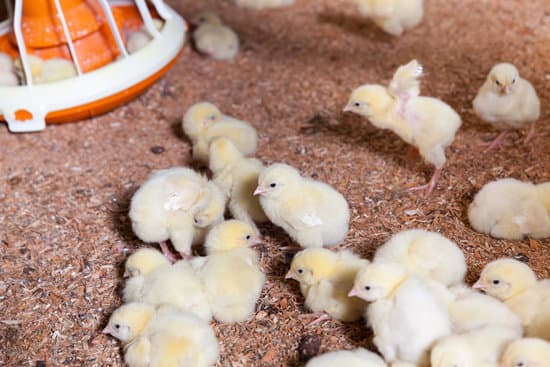
Backyard chicken rearing from baby chicks requires a brooder. The chicks will be away from the mother hen. So, you have to provide warmth, food, water, and any other thing they might need.
A brooder is a small room designed to raise young chicks.
Chicks can stay in the brooder for a few weeks. When they have fully developed feathers to provide warmth, you need to move them to the main chicken house, called the coop.
This is where you will place the chickens if you bought them at the point of lay.
Chicken coop offers shelter and security against predators. It should be leak-proof, warm, and sturdy enough to serve its purpose.
You can buy ready-made chicken coops, however, we recommend constructing one by yourself if you live off the grid.
The size of a coop depends on the number of chickens you will have in your flock. Each chicken requires about 3 square feet of floor space and about 8-10 square feet outdoors.
Design your chicken house according to the size of the intended flock and leave room for improvement.
Chicken Coop Floor
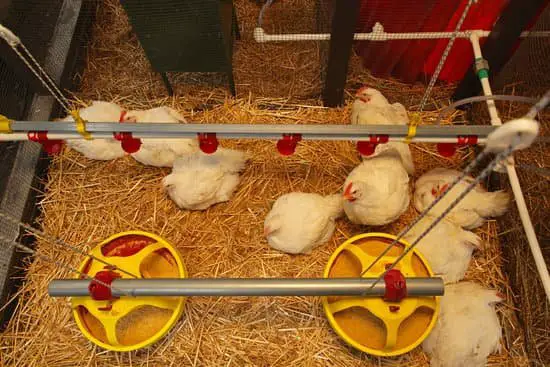
The flooring of a chicken coop is not the same as that of the house where we live. There should be bedding made of straw, sand, old papers, wood shavings, diatomaceous earth, or any other appropriate material.
Each of these materials serves a purpose. Sawdust and wood shavings absorb the droppings and control ammonia in the coop, while the diatomaceous earth is for sand bathing.
This routine practice helps dislodge mites and other parasites from their body.
You need to change beddings regularly to better control odor and prevent bacteria from building up.
In many cases, you can have diatomaceous earth in your flower garden and not necessarily on the chicken coop floor.
Heat Lamp
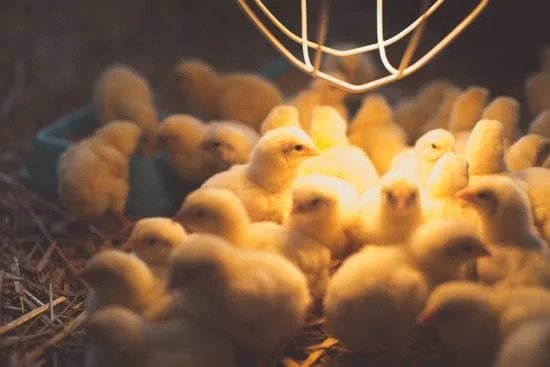
You need to keep your flock warm in winters to avoid distress. Warmth is essential for baby chicks in all weather conditions. That is why a brooder must always have heat lamps or an alternative source of heat.
In case you can’t provide a heat lamp to your chicks, you can explore some alternatives to keep them warm.
Maintain a temperature of about 95 degrees Fahrenheit in the brooder for the first week when the chicks arrive.
Decrease it by five degrees after every week for the subsequent weeks until chicks fully develop feathers, after which they can keep themselves warm.
Bedding
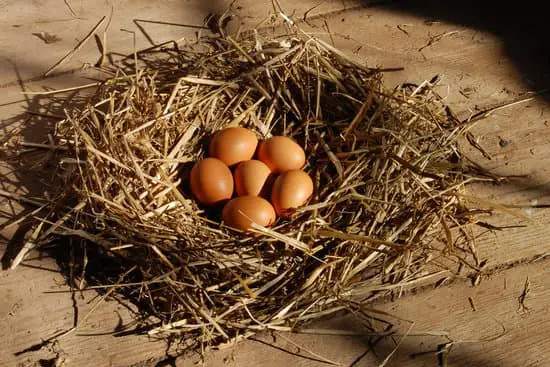
Birds prefer sleeping on raised surfaces such as tree branches, and chickens are not different. Since you cannot plant trees in the poultry house, construct wooden roosting bars at convenient heights.
You can have roosting bars of different diameters and mounted at different heights. That caters to chickens of different ages in your flock. Also, use round wooden bars because they are easier to grip than metal or plastic.
This makes your poultry very comfortable for maximum production.
Feeders and Water Containers
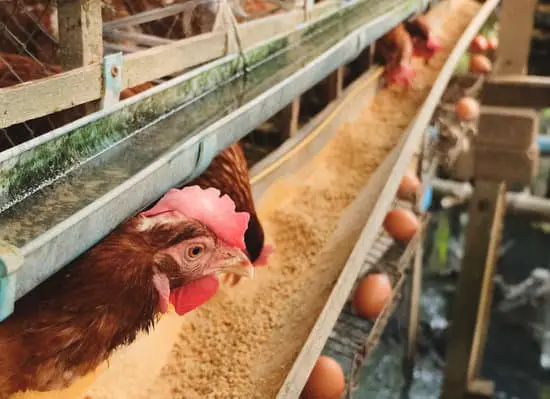
Chickens only feed on the ground for the food they have scavenged themselves. If you are to provide food and water, which you should, you will need feeders and drinkers. These should be kept clean to avoid contaminating the food or water.
Feeders and drinkers with rotating bars in the middle are preferred since birds cannot perch or roost on them. This avoids food contamination from their droppings.
Also, automatic feeders and drinkers are highly recommended. They dispense water or food as the chickens eat or drink, ensuring the food and water are always clean.
The feeders and drinkers should be raised from the ground to prevent birds from littering them when they scratch the ground for food.
Food and Water
Every living thing needs food and water to grow. Even if you will be using the free-range method of raising chicken, supplementing will still be necessary.
RentACoop Chick Feeder Waterer Kit
- RentACoop Has a Solution! |1L Chick Feeder & 1.5L Chick Drinker Set with New Adjustable Stands. Provide fresh, clean water and food for your growing flock from day old chicks through adult chickens. Also suitable for ducklings, turkey poults, quail and quail chicks, other poultry and small birds
- We Thought of Everything! - ALL NEW Adjustable Stands accommodate growing chicks and keep your RentACoop drinker and feeder off the floor of your brooder for less mess! Easy to assemble and clean as needed. Fill with chick starter, chick grower feed, fresh water daily, for up to 6 chicks
- Why You'll Love It! - Sturdy, premium quality BPA-free plastic chick water bottle and chick feeder are made to last. Efficient, low maintenance, gravity fed design leaves more time for bonding and enjoying your baby chicks!
Food
Create a long-term feeding plan for your poultry. This feeding plan is dependent on the age of the birds and should be adjusted as they grow. There are feeds for chicks, growers, pellets, layers, and broilers.
You should consider this when buying feeds or formulating your own.
Additionally, provide grit or pebbles together with the feeds. These small stones help birds digest food.
Their digestive system is not as well developed as those of mammals. Without adding the chicken gravel to their feeds, there will be issues with poor digestion.
Free-ranging chickens will always pick the small rocks on the ground together with the food.
For other poultry raising methods, you should provide it and keep a feeding schedule. Give your chickens food at appropriate times.
Water
Water is essential for the life of every organism. The water requirement by chickens depends on the purpose they are raised for. Layers need more water for egg formation than broilers. As a rule of thumb, birds should have access to water at all times.
Chickens need to drink clean water. Do not just fill any water in the drinkers if you are unsure of its purity. Giving contaminated water to your birds will expose them to disease, and we hope you will not want that.
Another rule of thumb: do not give the chicken water that you cannot drink yourself.
Homestead Essentials 3 Compartment Roll Out Nesting Box for Up to 15 Hens
- ROLL AWAY NESTING BOXES CHICKENS WILL LOVE: A perfect addition to your chicken coop, this chicken nesting box can accommodate up to 15 chickens. The perch design provides your hens a place to perch and rest within the coop. It's an ideal choice for chicken nesting boxes for laying eggs
- EASY ASSEMBLE AND USE: This nesting box for chickens is designed for easy assembly, making it a convenient solution for your chicken coop. All the nuts and bolts required for assembly are included along with instructional guides on how to put your new nest boxes together. Mounting hardware not included as this may vary depending on where you plan to mount your new nesting box.
- SAFE AND SECURE DESIGN: Our chicken boxes for laying eggs are designed with safety in mind. When mounted the nesting boxes slant slightly forward allowing the eggs to roll away into a protected compartment, keeping them safe. These roll-away nest boxes for chickens ensure your eggs will be protected from your hens as well as predators.
Nesting Boxes
If you are keeping poultry for egg production, then proper nesting box construction is mandatory. You may omit them only if keeping broilers, however, it is not optional when keeping birds for both egg and meat.
Nesting boxes are strategically placed in the chicken coop. The boxes have to be safe, enclosed, and warm to encourage egg-laying. Hens need privacy when laying eggs. That is why nesting boxes are must-haves for any poultry keeper.
Nesting boxes have varying designs and can be of different sizes. You can buy pre-built laying boxes or go through the DIY approach.
Use wood to build nesting boxes about one or two feet from the ground. Multi-nesting boxes are preferred to avoid egg-eating.
Whichever design you choose, the resulting laying boxes should be safe and improve privacy. They should have slanting tops to prevent other birds from perching on them. You need about one nesting box for every five hens.
Failing to build good nests can lead to regrettable losses. If the hens cannot find them in the coop when they need them, they will simply look for them elsewhere. They will often hide, and you might never discover where their nests are.
Poor nesting can also encourage egg eating and egg breakages, things you should avoid at all costs.
Time and Money
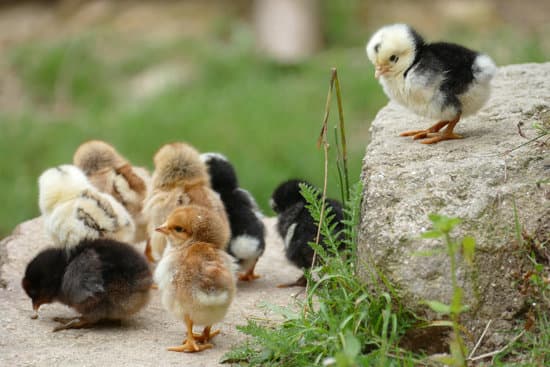
To prepare to raise chickens in your backyard, you need money and work within a timeframe. Poultry keeping requires capital, especially if you are doing it for commercial purposes.
If it is just backyard poultry keeping to provide eggs and meat for your family, it should not be costly.
If you are done preparing everything we have talked about here, then it is time to bring in your first flock. You need to select good chicken breeds for the intended purpose.
If you need eggs, look for reputable egg layers, and if you need meat, look for good meat producers.
For other reasons such as companionship, look for good pet breeds. You might also need to consider adaptability to the weather in your location.
There are many chicken breeds you can consider for the reasons stated above.
For fresh eggs, consider the following:
- White Leghorn hybrids (White Eggs)
- Plymouth Barred Rocks (Brown Eggs)
- Rhode Island Reds (Brown Eggs)
- Blue Andalusians (White Eggs)
- Ameraucanas/Easter Eggers (Blue Eggs)
For meat production and faster growth, consider the following:
- Cornish Cross
For both meat and egg production, consider the following:
- Plymouth Barred Rock
- Sussex
- Buff Orpingtons
For backyard pet, consider the following:
- Buff Orpington
- Golden Laced Wyandottes
- Easter Egger
- Speckled Sussex
- Barred Plymouth Rock
Chicken Medication
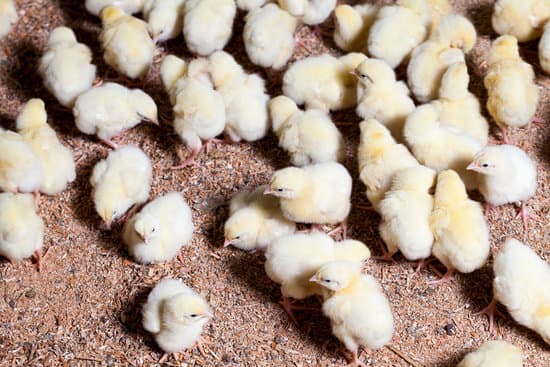
Chicken also require medication if they are unwell. As a poultry keeper, you need to monitor your flock regularly to identify any abnormal behaviors.
These are often indications of a disease or parasite infestations. Finding it out early can help save your birds.
To avoid introducing diseases to your flock, you should only buy healthy chickens. When you visit a hatchery or any other bird source, avoid buying birds with the following signs:
- Sleepy/Lethargic
- Hunched Into a Ball
- Sitting by Itself
- Reluctant to Move
- Any Nasal/Eye Discharge
- Blocked Vent
You should also call a vet or an experienced poultry farmer if one or more of your chickens display the above signs.
Notes
If you just want to get eggs, you just need to raise hens, and you don’t need to prepare a heater to incubate the eggs.
If you want to increase the number of chickens or have more chicks without buying, raise more roosters so you can have fertilized eggs.
Clean the chicken coop regularly
Vaccinate or choose to buy chicken breeds that have been vaccinated against avian influenza to ensure the safety
Personality Thinking
My parents are raising chickens. I saw that eggs are a real temptation—tastier and fresher than any store-bought eggs and better for baking too.
My sister and I also especially love the feeling of going to collect chicken eggs every morning.
Conclusion
Raising backyard chicken is a good source of fresh eggs and meat, which are recommended for good health. Raising chickens does not require advanced skills.
Just prepare everything as needed and be patient to harvest when the time comes. You will love the feeling of self-satisfaction with what you shall have achieved.
As always, thank you for caring for ”Em offgrid” in your life! If you are reading this article of ours, thank you, and we hope you have found the information useful.
